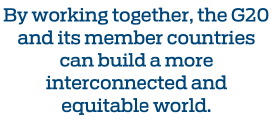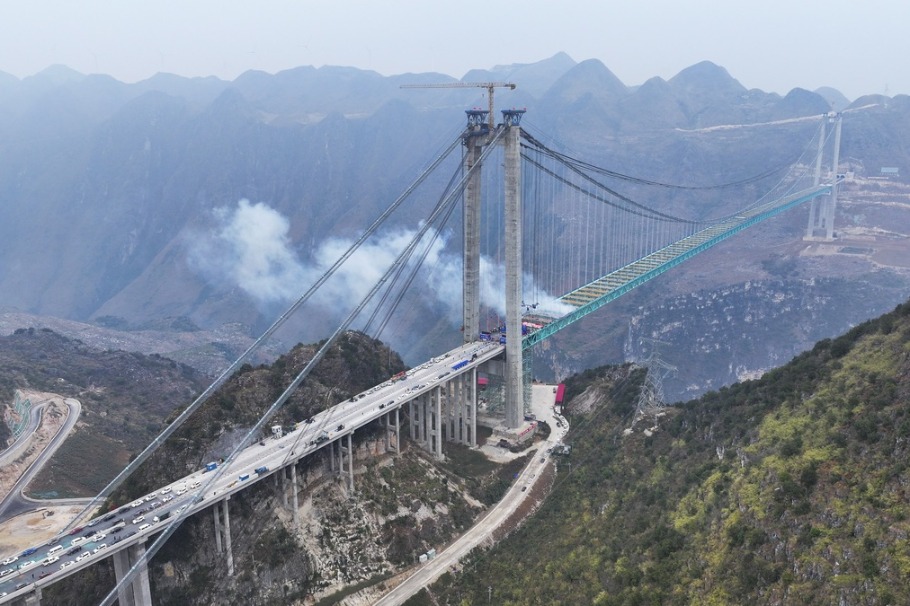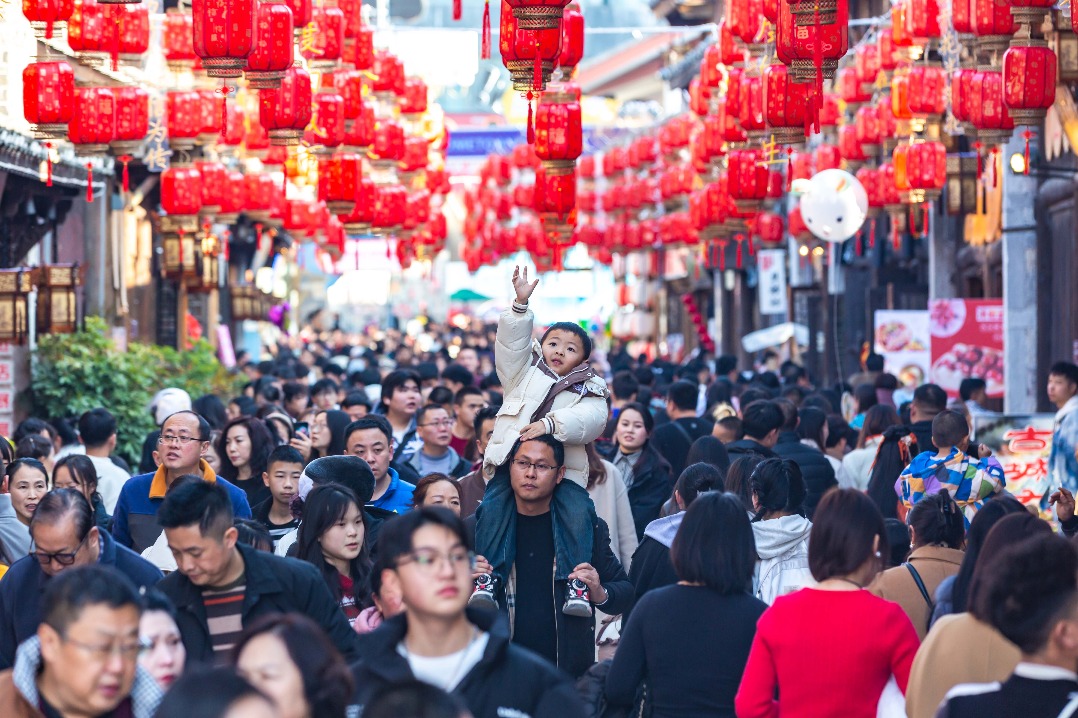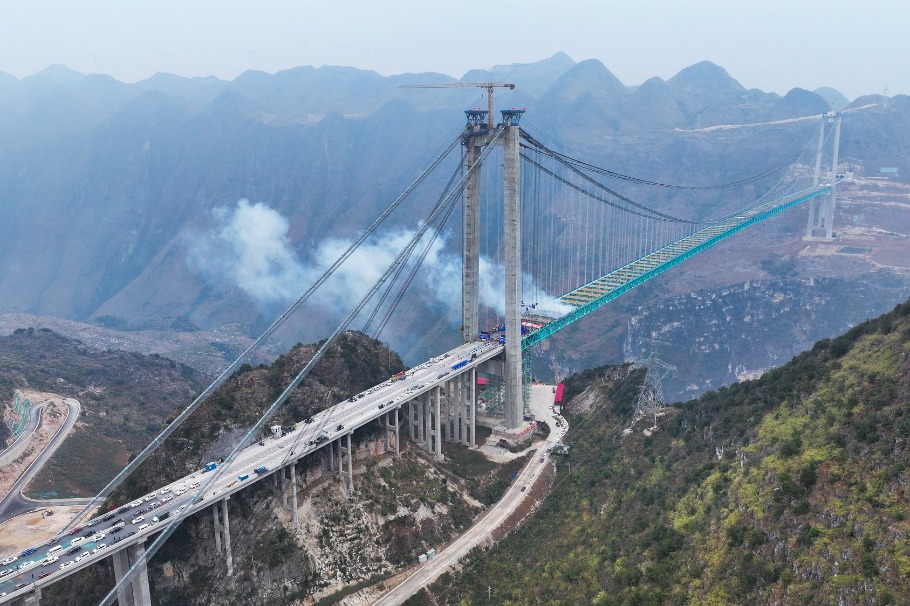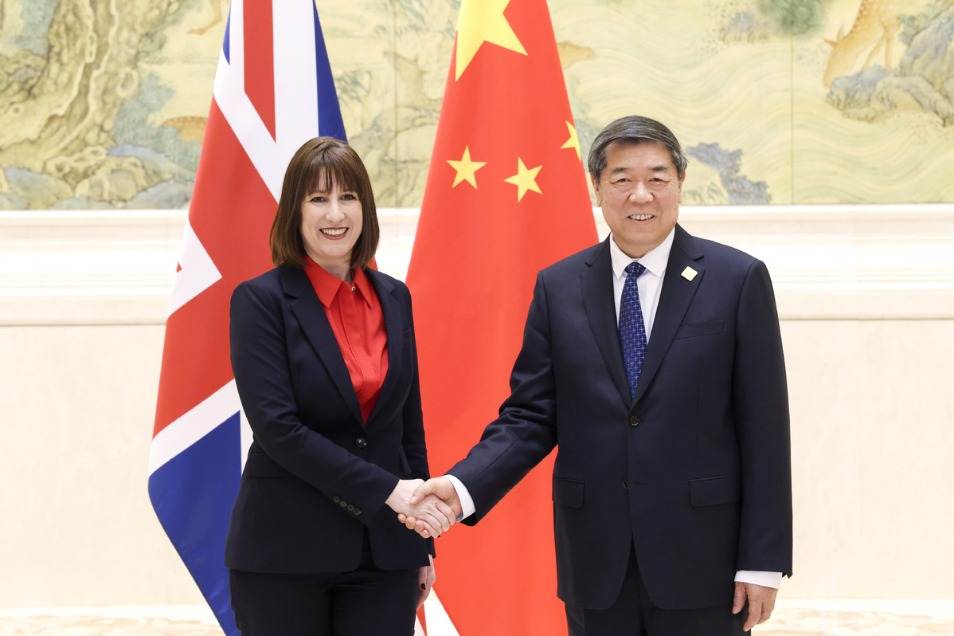Task laid out after Rio
Indonesia and China, as key players of the G20, must work together with other member countries to build a more interconnected and equitable world


The G20 summit in Brazil, from Nov 18-19, once again shone a light on the responsibilities of major economies in promoting global governance and cooperation. The G20, representing about 85 percent of the world's GDP, two-thirds of the global population, and three-fourths of international trade, stands as a pivotal platform for addressing some critical global challenges. Based on this situation, the deepening cooperation among G20 member countries, including Indonesia and China, holds profound implications for regional economic development and the evolving landscape of global governance.
We are all aware that the G20 has evolved from a crisis management forum during the 2008 global financial crisis to a more comprehensive platform addressing a spectrum of issues, from economic recovery and climate change to sustainable development and digital transformation. Its unique composition of developed and emerging economies enables it to facilitate diverse perspectives, making the G20 an essential forum in fostering policy coordination and multilateralism.
The 19th G20 summit in Rio de Janeiro came at a time when the global economic recovery remains uneven, exacerbated by geopolitical tensions, supply chain disruptions, climate change threats and inflationary pressures. Developing countries, particularly in regions such as Southeast Asia, require equitable access to financing, technology and strategic partnerships to achieve inclusive and sustainable growth. In this case, the G20 should prioritize any efforts to implement structural reforms that enhance inclusivity and address pressing challenges, such as digital inequality, climate change, and debt sustainability.
As the largest economy in Southeast Asia and a member of the G20, Indonesia has a strategic position. Its economy is projected to grow by 5 percent in 2024, driven by robust domestic consumption, infrastructure investment and a growing digital economy. During the G20 summit in Indonesia in 2022, the leaders of G20 countries emphasized resilience, inclusivity and sustainability, with key achievements including the establishment of the Financial Intermediary Fund for pandemic prevention, preparedness and response, and the launch of the Just Energy Transition Partnership.
Indonesia's ongoing collaboration with China is a testament to its proactive approach to leveraging partnerships for economic transformation. The cooperation not only strengthens Indonesia's role in the G20 but also positions it as a bridge between developing and developed nations. Meanwhile, Indonesia-China economic cooperation has deepened under the Belt and Road Initiative as a catalyst for regional growth. Projects such as the Jakarta-Bandung High-Speed Railway, in commercial operation since the fourth quarter of 2023, highlight how investments in infrastructure can drive economic growth and green development. This railway is the first high-speed railway in the Southeast Asia region and it has already created about 51,000 job opportunities in Indonesia and is expected to boost regional connectivity, reduce carbon emissions and promote tourism and trade. China stands as Indonesia's foremost trading partner. From January to August, the bilateral trade volume reached $92.79 billion, up 1.5 percent year-on-year. Indonesia's exports to China, primarily consisting of key commodities such as coal, palm oil, and nickel, play a vital role in meeting China's industrial demand for raw materials. Simultaneously, Chinese investments in Indonesia's smelting sector are driving the processing of raw materials such as nickel and aluminum, thereby strengthening local industries and creating employment opportunities.
In addition to traditional trade, the two nations have deepened their collaboration in emerging fields such as digital technology and renewable energy. Chinese companies' involvement in developing Indonesia's electric vehicle ecosystem supports the country's vision of becoming a regional hub for EV battery production. This partnership also plays a significant role in advancing Indonesia's energy transition efforts, with Chinese firms making notable contributions to solar and wind energy development.
Indonesia-China economic cooperation offers an opportunity to rejuvenate the essence of global cooperation. In the context of the Association of Southeast Asian Nations, by improving infrastructure, enhancing trade, and fostering technological transfer, these collaborations could contribute to ASEAN's vision of building a competitive, inclusive, and sustainable economic community. China's active engagement in ASEAN through platforms such as the Regional Comprehensive Economic Partnership complements Indonesia's G20 agenda, emphasizing shared prosperity and economic resilience.
While the benefits of Indonesia-China cooperation are evident, the G20 community can address critical challenges to ensure balanced and equitable growth. Major economies bear a responsibility to lead by example in areas such as climate financing, debt relief, and technological equity.
Indonesia and China, as key players in the G20, have demonstrated their commitment to being actively involved in shaping global governance and promoting the essence of global cooperation. By leveraging their strategic partnership, both countries can continue to shape the G20 agenda and inspire collective action to realize global prosperity and economic resilience. The G20 has an opportunity to reinforce its relevance and credibility by addressing the most pressing challenges of our time, ensuring that no nation is left behind in pursuit of global prosperity. By working together, the G20 and its member countries can build a more interconnected and equitable world.
The author is an assistant professor at the Faculty of Economics and Business, Indonesian International Islamic University, and a member of the advisory board at The Reform Initiatives, Indonesia. The author contributed this article to China Watch, a think tank powered by China Daily. The views do not necessarily reflect those of China Daily.
Contact the editor at editor@chinawatch.cn.
